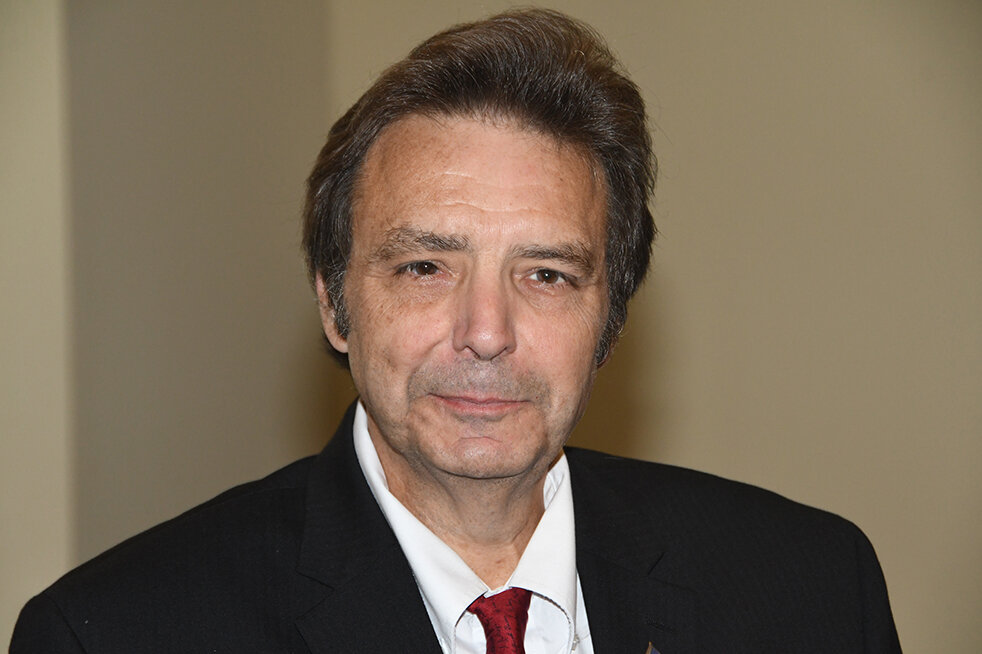Hoff: Remembering some posthumous Medal of Honor recipients
Dr. Samuel B. Hoff is a George Washington Distinguished Professor Emeritus of history and political science at Delaware State University. He served as the school’s ROTC director from 1993-99 and is a past recipient of a military history fellowship from the U.S. Military Academy at West Point.
Created in 1863 after separate Navy and Army awards were established, the Medal of Honor is the military’s highest recognition, bestowed for “conspicuous gallantry and intrepidity at the risk of life above and beyond the call of duty.” Of the over 3,500 medals awarded, more than 600, or about 18%, have been posthumous. While Memorial Day salutes all who have lost their lives for liberty, the stories below point to the bravery exhibited by men who saved others in the process.
World War I saw only two Black regiments sent overseas, of which Cpl. Freddie Stowers was a member of the 371st. He led an attack during the Meuse-Argonne Offensive, in which Germans appeared to give up but then opened fire on American and French troops. Stowers was hit as he took out German defensive positions and died of his wounds at age 22. Despite his actions and those of others, no African American was awarded the Medal of Honor for action in World War I, a consequence of virulent racism in the American military and American society at the time. More than 70 years later, after a comprehensive study of records, Cpl. Stowers’ sisters accepted a posthumous Medal of Honor on his behalf, presented by President George H.W. Bush on April 24, 1991.
Benjamin Solomon graduated from the University of Southern California Dental School in 1937 and started a dental practice. He was drafted into the military three years later as a private but later was commissioned as an officer in the Army Dental Corps, making his way to captain. In July 1944, he was part of the American forces fighting the Battle of Saipan. After Japanese troops attacked the temporary hospital where Solomon was working, he helped evacuate others and killed almost 100 enemy soldiers before being killed himself at age 29. Despite not being eligible for the award as a medical officer and the fact that the time for consideration had expired, Capt. Solomon nonetheless had many friends who lobbied on his behalf for decades. That support paid off, and his family received the posthumous Medal of Honor presented by President George W. Bush on May 1, 2002. Solomon is noted as one of only three dental officers to have received the award.
Emil Kapaun grew up in Kansas and was ordained a Catholic priest. After service during World War II, he was commissioned in the Army Chaplain Corps in 1948. Already awarded a Bronze Star Medal for rescuing a wounded soldier during the Korean War, Chaplain Kapaun and other Americans were captured by North Korean and Chinese troops Nov. 1, 1950. Before he died as a prisoner of war in May 1951, he tended to others, saving hundreds, according to some accounts. Joined by members of the Kansas congressional delegation, Father Kapaun’s family accepted his posthumous Medal of Honor on April 11, 2013, presented by President Barack Obama.
More than half of all Medal of Honor awards given for courageous actions during the Vietnam War have been bestowed posthumously. One such case is Richard Anderson, a Marine whose platoon was ambushed in August 1969, near a base in the Quang Tri province. Anderson threw himself on a grenade to save another Marine. His posthumous Medal of Honor came within two years, as Vice President Spiro Agnew presented the award to Anderson’s family Sept. 15, 1971.
The terrorist attacks against the United States on Sept. 11, 2001, led to a sustained response by this country. As a Navy SEAL, Lt. Michael Murphy was part of a team behind enemy lines on a recon mission in Afghanistan in June 2005. After being spotted by Taliban fighters, Lt. Murphy was able to get to a position to make a distress call, though he and his team were killed before help arrived. His family received the posthumous Medal of Honor on Oct. 22, 2007, from President George W. Bush.
On this Memorial Day, we remember all whose selfless sacrifice has ensured our freedom and way of life.
Reader reactions, pro or con, are welcomed at civiltalk@iniusa.org.







